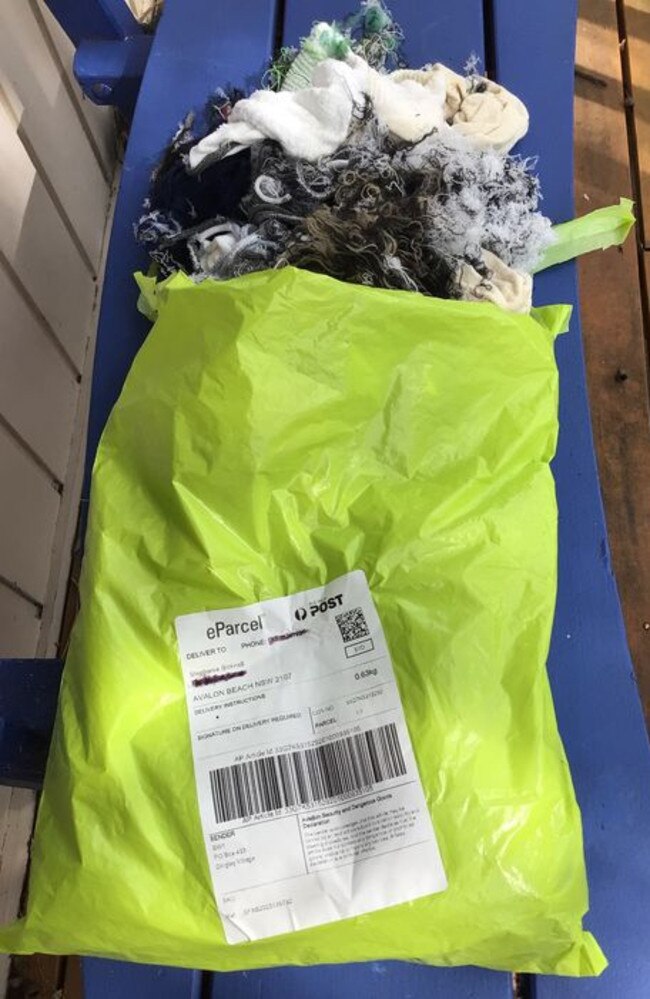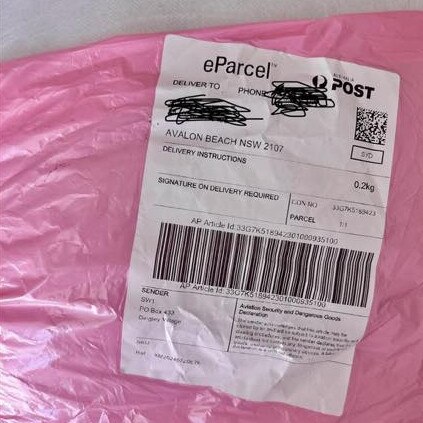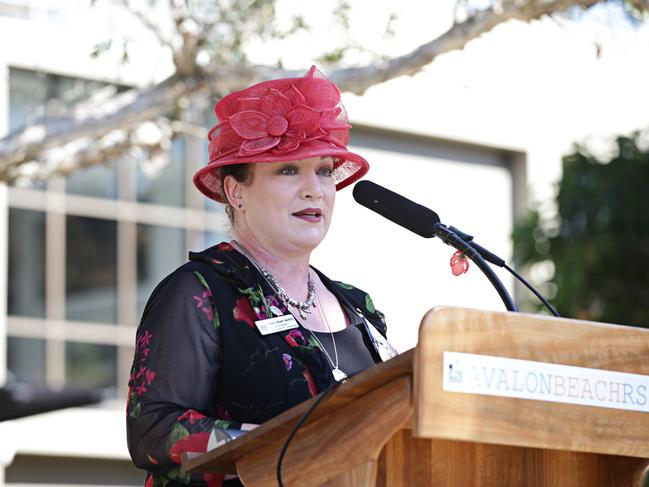Mystery parcel rort: ‘Brushing’ delivery scam sweeps into northern beaches
Mysterious parcels, containing dirty-faced dolls and old socks, have been turning up on the doorsteps of Sydney homes. This is the nefarious reason.

Manly
Don't miss out on the headlines from Manly. Followed categories will be added to My News.
Mysterious parcels filled with junk like old socks, rags, balls of fluff and soiled toys are landing on the doorsteps of homes on Sydney’s northern beaches.
The unsolicited deliveries, which have alarmed some residents, are part of “brushing” scams by dishonest online retailers trying to boost their sales profiles.
“Brushing” involves online merchants sending parcels to thousands of real people, then posting fake glowing reviews of their products, in those people’s names, and boasting about the number of sales they have had.
These multiple favourable reviews from “real” people help the retailers shoot to the top of online searches, making the sellers seem more trustworthy and legitimate.
Residents living around Avalon Beach and Newport are reporting increasing numbers of the “creepy” parcels, which were never ordered but which have the correct addresses and names of the recipients.

One local posted to a community Facebook group that she received a large “eParcel” containing old children’s socks along with unravelled wool, yarn and pieces of cord.
The woman posted that she was “a bit freaked out about the creepy delivery I didn’t order”.
A return address on the package indicated it had been sent from a post office box at Dingley Village, a suburb about 28km southeast of the Melbourne CBD.

The “brushing” victim’s post attracted comments from others who had received parcels they hadn’t ordered.
Tamara Sloper-Harding told the Manly Daily she recently found a large parcel at her door, filled with old toys including a doll with dirt on its face and numerous soiled soft animals.

Ms Sloper-Harding, an Australian Navy veteran who served as a peacekeeper in East Timor and now runs a charitable group supporting orphanages and schools in Timor Leste, originally thought it may have been a donation from a supporter.
“But I was surprised when I opened it. The toys were so dirty and soiled,” she said. “I don’t think they were a donation.”
Ms Sloper-Harding said the return address on the package was a “town in Victoria”.
“It was very odd,” she said. “Very weird.”
Another local posted that a “big parcel” from Dingley Village containing “stuffed second-hand dirty toys” was left on her doorstep.
Three other residents posted that they had received polyester cushion inserts.
Another woman said a parcel containing “cut up pieces of cheap trashy clothing”.
“Freaked me out too,” she said.
“I rang the police and was advised to reseal it and return to sender.”
A parcel containing toilet paper was delivered to another Avalon Beach address.
Cyber security expert Simon Smith said “brushing” was not uncommon and described it more as a “deceptive trade practice” rather than a security issue.

Mr Smith said for retailers, “reputation is everything when it comes to online shopping”.
“If you have 20,000 or so verified people who have received your product, it means a lot when you are dealing with online marketplaces,” he said.
“’Brushing’ is misleading the public into thinking that customers are legitimately receiving a retailer’s product, when they aren’t ordering them.”
Mr Smith said people should “disregard the delivery”.
“It’s a bit like spam in your inbox. Throw the package in the bin.”
But he warned that “brushing” was a sign that people needed to be more careful about putting their address and identification details on the internet that could be later used for ID thefts and other scams
“It’s common sense. Having your address in public can be a bad thing.”
Northern Beaches Police said they were aware of reports of residents receiving alleged “brushing” scam parcels.
Police urged anyone who received a suspicious parcel to contact them or Crime Stoppers on 1800 333 000.
Residents wanting information on cyber scams can go to the federal government’s Scamwatch website.
HOW ‘BRUSHING’ SCAMS WORK: (Source: LifeLock by Norton)
— The seller goes online and finds people’s names and addresses using people search or data broker sites or perusing the dark web for data breaches.
— Using this stolen information, they can open hundreds of new accounts at their online store or a marketplace, like eBay, where the seller will list their products.
— The scammers then “buy” their own goods and send them to your house. By making these fake purchases, they gain “verified” status.
— Scammers use their status as a “verified” account to write positive product reviews. As “verified” buyers, they can post reviews that may be weighed more heavily than other reviewers.
— Some brushing scams involve thousands of fake accounts and reviews that are designed to make it look as if their products have been purchased and used by many people.





